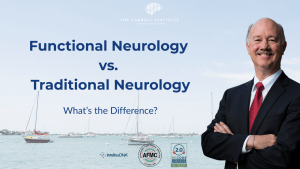How Inflammation Impacts Your Memory and How to Prevent It
Imagine walking into a room, only to forget why you went there. Or struggling to recall the name of an old friend you ran into. While occasional lapses are normal, persistent memory issues could be a sign of something more serious—chronic inflammation. Could inflammation be the hidden culprit stealing your mental sharpness and memories? Let’s dive into this fascinating and urgent topic to uncover the connection between inflammation and memory loss.
The Problem: Chronic Inflammation and Memory Loss
In recent years, scientists have uncovered a startling link between chronic inflammation and cognitive decline. Inflammation isn’t just about swollen joints or aching muscles; it’s a systemic condition that silently wreaks havoc on your brain.
When inflammation becomes chronic, it disrupts your brain’s ability to function efficiently, impairing memory formation and retrieval. Left unchecked, it can lead to more serious conditions like Alzheimer’s disease or other forms of dementia. For older adults, understanding and addressing inflammation is critical to preserving mental clarity and quality of life.
Why Chronic Inflammation Impacts Your Brain and Memory
Chronic inflammation impacts memory and brain function in profound ways. Here’s why:
Neuroinflammation—The Brain’s Silent Enemy
Chronic inflammation triggers a harmful response in your brain’s immune cells, called microglia. Instead of protecting your neurons, overactive microglia attack them, causing cognitive decline.Disrupted Communication Between Neurons
Inflammation interferes with the production of neurotransmitters, chemicals that help your neurons communicate. This disruption can impair memory, learning, and focus.Oxidative Stress and Cellular Damage
Inflammation increases oxidative stress in your brain, leading to the destruction of brain cells and the shrinkage of key areas like the hippocampus—your brain’s memory center.
Understanding how inflammation affects your brain is the first step toward prevention. But how do you combat this silent saboteur? That’s what we’ll cover next.
The Solution: How to Combat Inflammation and Protect Your Memory
The good news? Chronic inflammation is not a life sentence. By adopting targeted strategies, you can reduce inflammation, improve memory, and protect your brain as you age.
This blog post will cover:
What chronic inflammation is and why it matters.
Key lifestyle changes to combat inflammation.
Practical steps to boost brain health and memory retention.
Content Upgrade: Looking for a deeper dive into actionable steps to enhance your brain health? Download our free guide, The Longevity Toolkit—your ultimate resource for proactive aging.
What Is Chronic Inflammation and Why Does It Matter?
1. What Is Chronic Inflammation?
Unlike acute inflammation, which helps your body heal from injuries, chronic inflammation is a prolonged, low-grade response that damages tissues over time. When your body is stuck in this state, it begins to attack healthy cells, including those in your brain.

2. The Brain-Body Connection
Research shows that inflammation in your body—from sources like poor diet, stress, or toxins—doesn’t stay localized. It crosses the blood-brain barrier, creating neuroinflammation and impairing cognitive function.
3. The Cost of Ignoring Inflammation
Studies link chronic inflammation to conditions like Alzheimer’s disease, Parkinson’s, and general cognitive decline. Ignoring inflammation now can mean significant memory problems later.
What You Can Do to Reduce Inflammation and Improve Memory
1. Anti-Inflammatory Nutrition
Research shows that diet plays a massive role in managing inflammation. Adopting an anti-inflammatory diet can reduce neuroinflammation and improve memory retention.
Key Foods: Fatty fish, leafy greens, berries, turmeric, and olive oil.
Foods to Avoid: Processed sugars, refined carbs, and trans fats.
“Let food be thy medicine and medicine be thy food.” – Hippocrates
2. Physical Activity to Reduce Inflammation
Exercise is one of the most effective ways to combat chronic inflammation. Moderate physical activity stimulates the release of anti-inflammatory cytokines, which help protect your brain.
Recommended Activities: Walking, yoga, swimming, or resistance training.
Goal: Aim for at least 150 minutes of moderate activity per week.
“Exercise is the single most powerful tool you have to optimize your brain function.” – Dr. John Ratey
3. Stress Management Techniques
Chronic stress triggers inflammation. By managing stress, you can lower inflammation and protect your memory.
Techniques: Meditation, deep breathing, journaling, or spending time in nature.
Tip: Just 10 minutes of mindfulness practice daily can make a difference.
“You cannot control the waves, but you can learn to surf.” – Jon Kabat-Zinn
How to Implement These Steps in Your Daily Life
1. Create an Anti-Inflammatory Meal Plan
Start by replacing processed foods with nutrient-dense options. Use meal-prep techniques to stay consistent.
2. Build an Exercise Routine That Works for You
Start small. Even a 10-minute daily walk can lower inflammation over time.
3. Adopt a Stress-Reduction Habit
Commit to one stress-management activity daily, whether it’s deep breathing, a gratitude journal, or yoga. inflammation and memory loss
What If – Conclusion: Why You Must Act Now
Chronic inflammation doesn’t just rob you of mental clarity—it can steal years of your life. Ignoring this silent killer today could mean facing debilitating memory loss tomorrow. The good news? You have the power to take control. By reducing inflammation, you can sharpen your memory, protect your brain, and enjoy a vibrant, independent life.
Recap of Key Points:
Chronic inflammation is a leading cause of memory loss and cognitive decline.
Lifestyle changes—like diet, exercise, and stress management—can dramatically reduce inflammation.
Proactive steps today can safeguard your brain health for years to come.
Don’t Wait to Protect Your Memory
Download your free guide, The Longevity Toolkit, to discover actionable steps to improve your brain health and combat inflammation. Your future self will thank you.

Dr. Garland Glenn, DC, PhD, IFM, AFMC
Founder & Clinical Director, The Carroll Institute — Sarasota, FL
Dr. Garland Glenn is a board-certified chiropractic physician and functional medicine practitioner specializing in cognitive health, neurodegeneration, and root-cause medicine. Certified as an AFMC (Advanced Functional Medicine Clinician) and Institute for Functional Medicine (IFM) trained, he has also completed over 500 hours of advanced training in Functional Neurology under Dr. Ted Carrick, founder of the Carrick Institute.
At The Carroll Institute, Dr. Glenn leads Sarasota’s only ReCODE-certified Functional Neurology program, helping patients reverse or prevent cognitive decline through the Bredesen ReCODE Protocol, neuroplasticity exercises, and personalized functional medicine care.
Learn more about his background and approach at About Dr. Garland Glenn.
– schedule now –
free discovery call
To help you get started, we offer a free 20-minute Discovery Phone Consultation. During this call, you will be able to talk with one of our Certified Brain Health Coaches about what going on with you or your loved one and find out if we can help. Please review our FAQs prior to scheduling your free call. We look forward to talking with you soon and helping you Save Your Brain.
(yes, it’s totally free!)
ReCODE® is a registered program developed by Dr. Dale Bredesen and licensed through Apollo Health. Dr. Garland Glenn is a certified ReCODE practitioner.



